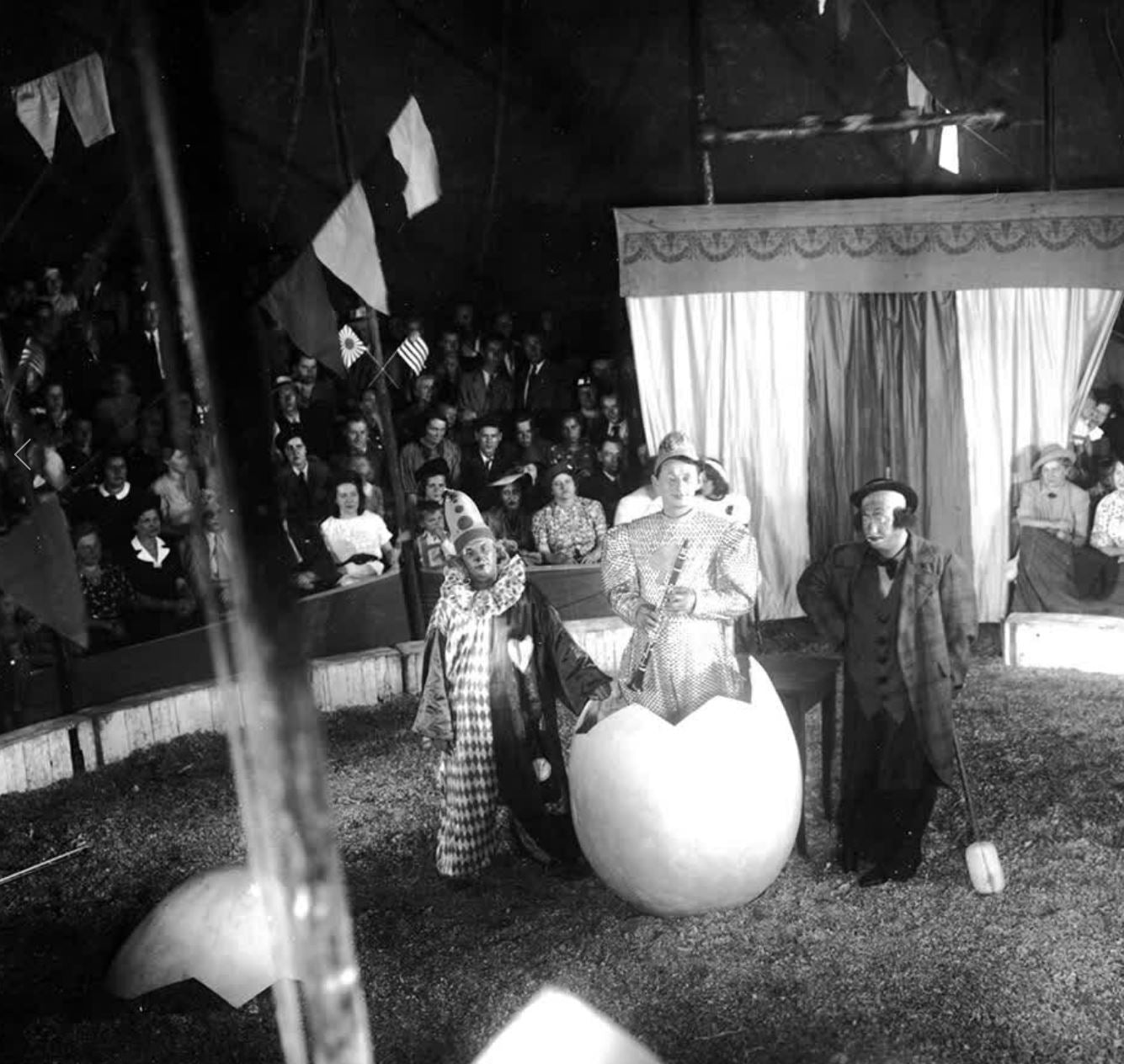In the Czechoslovak cinema, the 1939 film The Street Is Singing (Ulice zpívá) holds a special place as a unique and intriguing piece of work. Directed by the legendary Vlasta Burian alongside Čeněk Šlégl and Ladislav Brom, this film showcases the comedic prowess and directorial talents of Burian, often hailed as the king of Czech comedians. The movie is based on a play by Paul Schurek, with cinematography by Jaroslav Tuzar and a musical score by Josef Dobeš and Jan Seehák, creating a rich tapestry of visual and auditory storytelling.
The film’s plot revolves around two circus clowns, played by Vlasta Burian and Jaroslav Marvan, who adopt an abandoned child. Despite their initial success in the circus, circumstances force them to eke out a living as street musicians. The child, who grows up under their care, remains devoted to his adoptive parents even as he faces the trials of adulthood. The story takes a turn when he grapples with love and a stolen loot that serendipitously falls into their laps. This blend of humor and sentimentality creates a film that, while considered one of Burian’s weaker works, still holds a certain charm.
The Street Is Singing is distinguished by its stellar cast. Vlasta Burian and Jaroslav Marvan deliver captivating performances as the clowns Silvanea and Revelli, respectively. Their on-screen chemistry brings to life the touching yet comedic bond between the two characters. The supporting cast, including Antonín Novotný, Eva Matoušková, and Marie Glázrová, adds depth to the narrative. Glázrová, in particular, shines in her role as Lory Brandlová, the clowns’ housekeeper, who stands by them with a motherly protective instinct.  Despite the film’s light-hearted approach, it does not shy away from exploring deeper themes. The portrayal of the clowns’ struggles and their relationship with the adopted child reflects broader human experiences of love, loyalty, and survival. The humor, while sharp and sometimes biting, is balanced with moments of genuine tenderness, making the film a poignant reflection of its time.
Despite the film’s light-hearted approach, it does not shy away from exploring deeper themes. The portrayal of the clowns’ struggles and their relationship with the adopted child reflects broader human experiences of love, loyalty, and survival. The humor, while sharp and sometimes biting, is balanced with moments of genuine tenderness, making the film a poignant reflection of its time.
However, The Street Is Singing is not without its flaws. Some critics point to the film's sentimental overtones and occasional unevenness in performance, particularly with Antonín Novotný's character, Franci. Yet, these imperfections do not overshadow the film's overall impact. Instead, they add to its unique character, making it a memorable piece of Czechoslovak cinema history.
The Street Is Singing is a film that deserves recognition for its artistic merit and historical significance. It is a delightful showcase of Vlasta Burian's comedic genius and a testament to the enduring appeal of classic Czech cinema. For those looking to explore the rich heritage of Czechoslovak film, this movie offers a charming and insightful journey into a bygone era.















